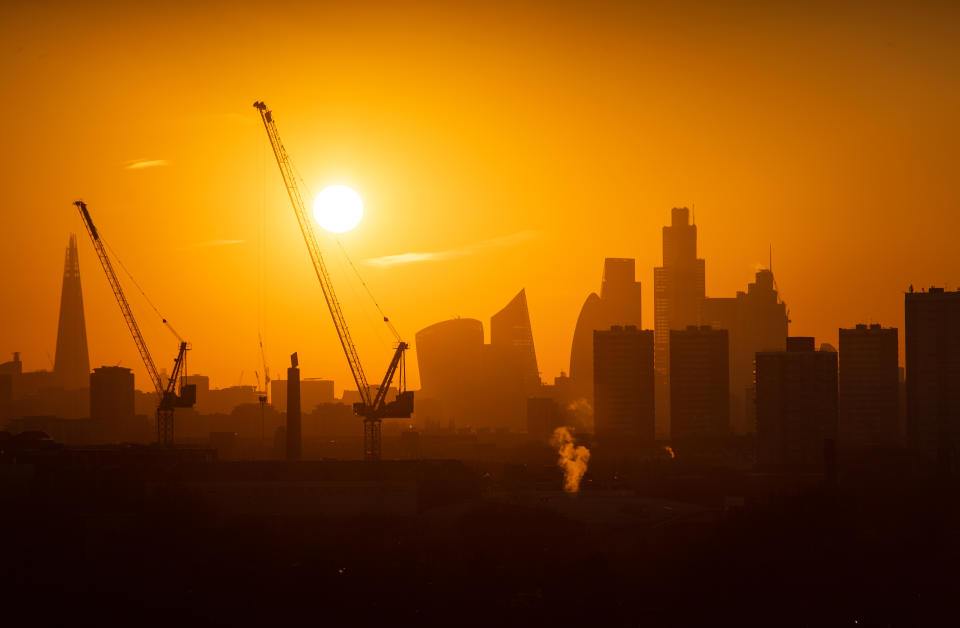Coronavirus: UK economy saw worst slump since 2008 even before full lockdown blow

UK economic output declined by 2% in the first three months of 2020, its fastest quarterly contraction since the 2008 financial crisis, according to the Office for National Statistics (ONS).
The quarter-on-quarter contraction in gross domestic product (GDP), which was slightly better than the 2.5% analysts had forecast, demonstrates the first direct effects of the coronavirus pandemic.
In March, when the UK-wide lockdown was first implemented, GDP fell by 5.8% compared to February, the largest monthly contraction since 1997, when such records began.
“With the arrival of the pandemic nearly every aspect of the economy was hit in March, dragging growth to a record monthly fall,” said Jonathan Athow, the deputy national statistician for economic statistics.
“Services and construction saw record declines on the month with education, car sales and restaurants all falling substantially,” he said.
READ MORE: Just 10% of promised government-backed coronavirus loans reach businesses
While the declines seen over the first quarter are stark, the full force of the economic impact of the pandemic is not expected to be seen until the second quarter.
Nonetheless, the ONS pointed to “widespread falls” across the vast majority of industries during the period.
Services output fell by 1.9% in the quarter, the largest quarterly decline since records began. The food and beverage sub-sector fell by 7.3%, while that of accommodation declined by 14.6%, reflecting the closures of bars, restaurants, and hotels.
Travel agents saw a 23.6% fall-off in output in the quarter, reflecting widespread travel restrictions.
Declines in the manufacturing sector saw production output fall by 2.1% in the quarter. Construction output fell by 2.6%.
Output from wholesale and retail trade fell by 3.0% in the period, reflecting the impact of early social distancing and the country-wide restrictions.
READ MORE: UK furlough scheme extended to October with part-time work allowed
“This morning’s UK data may not have been as bad as predicted but it can’t disguise the fact that worse is yet to come,” said Michael Hewson, the chief market analyst at CMC Markets UK.
Household consumption fell by just 1.7%, which was better than expected. “We can probably put this better than expected consumption number down to some of the panic buying we saw at the end of March,” said Hewson.
The new data also comes after the Bank of England last week warned that the country was on the precipice of its worst recession in over 300 years.
While the bank decided not to issue its traditional forecasts, the bank predicted that the country’s GDP could shrink by 30% in the first half of 2020, the sharpest decline since the Great Frost of 1709.
It said, however, that the decline in economic growth should be “temporary” and that activity would pick up “relatively rapidly.”
If social distancing measures and government support schemes remain in place until early June before being “gradually unwound” by the end of the third quarter, the bank predicted that output could drop by 14% overall in 2020, before rebounding by 15% in 2021.
READ MORE: Coronavirus could create £105bn debt black hole for smaller UK firms
Chancellor Rishi Sunak said on Tuesday that the government would extend its wage subsidy scheme until the end of October.
Staff will continue to receive pay subsidies at 80% of average pay up to £2,500 a month, though firms will be allowed to reintroduce furloughed workers on a part-time basis from July.

 Yahoo Sports
Yahoo Sports 
